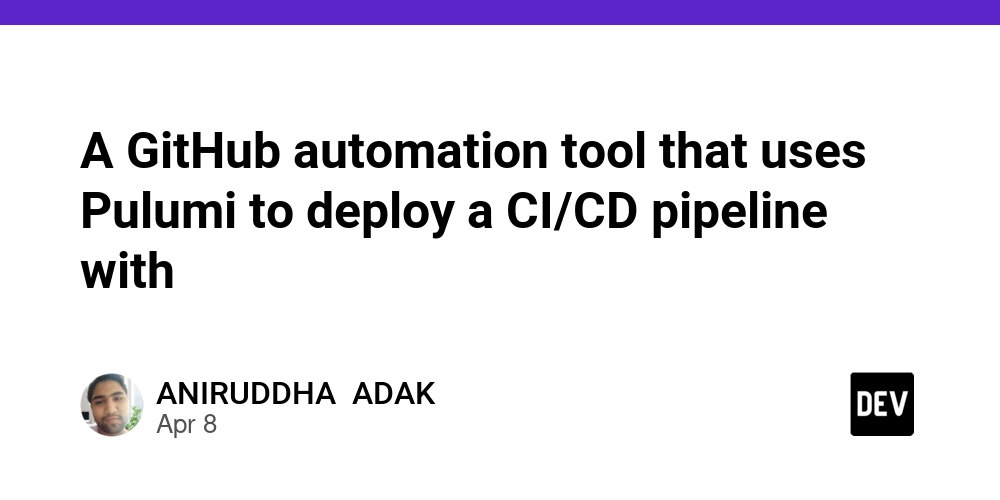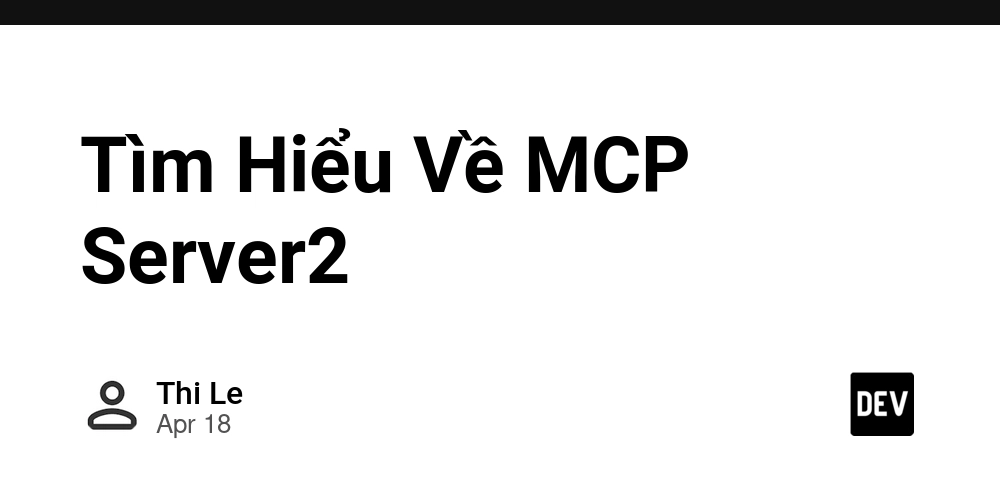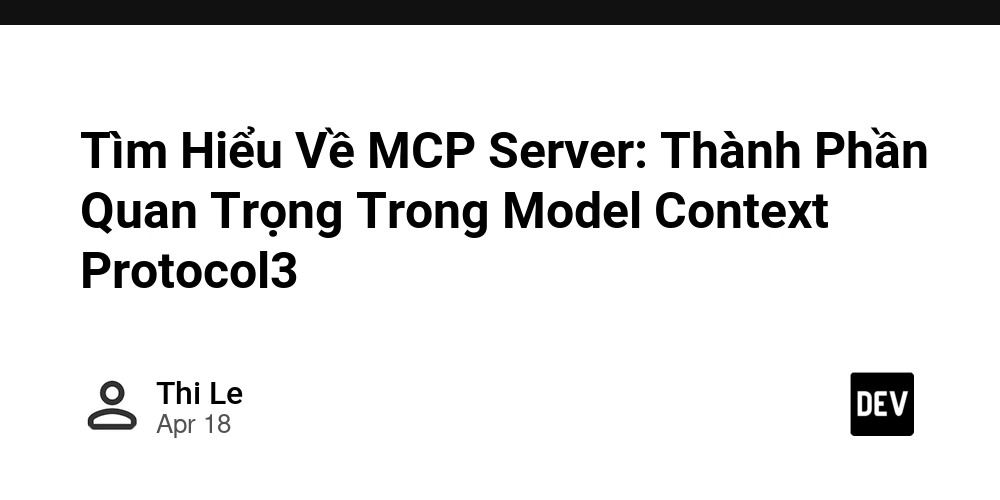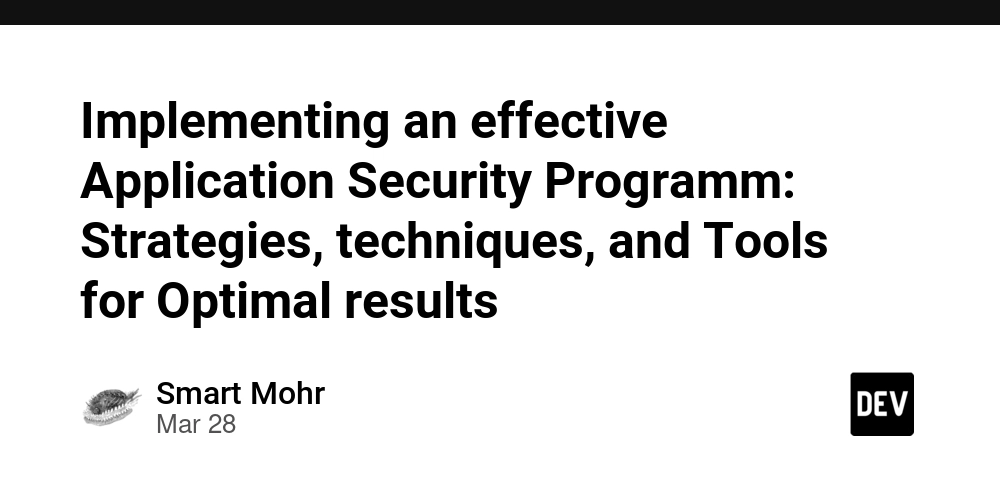A GitHub automation tool that uses Pulumi to deploy a CI/CD pipeline with
This is a submission for the Pulumi Deploy and Document Challenge: Get Creative with Pulumi and GitHub What I Built Auto-Labeler Bot: A GitHub automation tool that uses Pulumi to deploy a CI/CD pipeline with: AI-powered issue labeling (via AWS Comprehend) Auto-generated PR templates based on issue content Dynamic milestone assignment based on labels Security checks for sensitive keywords Key Files: main.py: Core Pulumi program labeler_bot.py: GitHub App logic using Automation API ci-cd-pipeline.yaml: GitHub Actions workflow README.md: Setup guide & threat model My Journey First Hurdle: Authentication Circus Tried 3 different token approaches before realizing Pulumi's aws.iam.Role could simplify permissions. Key Prompt: "Show me how to create a GitHub repository with a CODEOWNERS file and deployment protection rules using Pulumi" Breakthrough: Used Pulumi's GitHubRepositoryWebhook resource to connect the bot to GitHub's Events API without exposing secrets in code! Using Pulumi with GitHub Why Pulumi? Version-controlled infrastructure for GitHub workflows Multi-repository management across teams Secret encryption using Pulumi's Secrets Manager SDK Gems: import pulumi_github as github # Create repository with security policies repo = github.Repository("secure-app", visibility="private", allow_merge_commit=False, allow_rebase_merge=True) # Auto-labeler webhook setup webhook = github.RepositoryWebhook("issue-labeler", repository=repo.full_name, events=["issues"], active=True, configuration={ "url": "https://labeler-bot.example.com/webhook", "content_type": "json" }) Security Wins: GitHub App credentials stored in Pulumi Secrets Manager Deployment protection rules blocking force-pushes Automated dependabot alerts Documentation Highlights (From README) Step 1: Deploy with Pulumi pulumi up --config github:token=your_personal_access_token Step 2: Configure Webhook curl -X POST -H "Authorization: Bearer YOUR_TOKEN" \ -H "Accept: application/vnd.github.v3+json" \ https://api.github.com/repos/yourusername/auto-labeler-bot/hooks Step 3: Customize Rules (YAML snippet) label_rules: - keywords: ["urgent", "security"] priority: P0 assignees: ["security-team"] - keywords: ["bug"] add_labels: ["bug", "needs-triage"] Troubleshooting Tips: ⚠️ Ensure GitHub App has contents:read scope ⚠️ Validate webhook URLs with ngrok during testing ⚠️ Monitor AWS Comprehend API costs Why This Matters Traditional approaches to GitHub automation:

This is a submission for the Pulumi Deploy and Document Challenge: Get Creative with Pulumi and GitHub
What I Built
Auto-Labeler Bot: A GitHub automation tool that uses Pulumi to deploy a CI/CD pipeline with:
- AI-powered issue labeling (via AWS Comprehend)
- Auto-generated PR templates based on issue content
- Dynamic milestone assignment based on labels
- Security checks for sensitive keywords
Key Files:
-
main.py: Core Pulumi program -
labeler_bot.py: GitHub App logic using Automation API -
ci-cd-pipeline.yaml: GitHub Actions workflow - README.md: Setup guide & threat model
My Journey
First Hurdle: Authentication Circus
Tried 3 different token approaches before realizing Pulumi's aws.iam.Role could simplify permissions.
Key Prompt:
"Show me how to create a GitHub repository with a CODEOWNERS file and deployment protection rules using Pulumi"
Breakthrough:
Used Pulumi's GitHubRepositoryWebhook resource to connect the bot to GitHub's Events API without exposing secrets in code!
Using Pulumi with GitHub
Why Pulumi?
- Version-controlled infrastructure for GitHub workflows
- Multi-repository management across teams
- Secret encryption using Pulumi's Secrets Manager
SDK Gems:
import pulumi_github as github
# Create repository with security policies
repo = github.Repository("secure-app",
visibility="private",
allow_merge_commit=False,
allow_rebase_merge=True)
# Auto-labeler webhook setup
webhook = github.RepositoryWebhook("issue-labeler",
repository=repo.full_name,
events=["issues"],
active=True,
configuration={
"url": "https://labeler-bot.example.com/webhook",
"content_type": "json"
})
Security Wins:
- GitHub App credentials stored in Pulumi Secrets Manager
- Deployment protection rules blocking force-pushes
- Automated dependabot alerts
Documentation Highlights (From README)
Step 1: Deploy with Pulumi
pulumi up --config github:token=your_personal_access_token
Step 2: Configure Webhook
curl -X POST -H "Authorization: Bearer YOUR_TOKEN" \
-H "Accept: application/vnd.github.v3+json" \
https://api.github.com/repos/yourusername/auto-labeler-bot/hooks
Step 3: Customize Rules (YAML snippet)
label_rules:
- keywords: ["urgent", "security"]
priority: P0
assignees: ["security-team"]
- keywords: ["bug"]
add_labels: ["bug", "needs-triage"]
Troubleshooting Tips:
⚠️ Ensure GitHub App has contents:read scope
⚠️ Validate webhook URLs with ngrok during testing
⚠️ Monitor AWS Comprehend API costs
Why This Matters
Traditional approaches to GitHub automation:




























![[Webinar] AI Is Already Inside Your SaaS Stack — Learn How to Prevent the Next Silent Breach](https://blogger.googleusercontent.com/img/b/R29vZ2xl/AVvXsEiOWn65wd33dg2uO99NrtKbpYLfcepwOLidQDMls0HXKlA91k6HURluRA4WXgJRAZldEe1VReMQZyyYt1PgnoAn5JPpILsWlXIzmrBSs_TBoyPwO7hZrWouBg2-O3mdeoeSGY-l9_bsZB7vbpKjTSvG93zNytjxgTaMPqo9iq9Z5pGa05CJOs9uXpwHFT4/s1600/ai-cyber.jpg?#)














































































































































![[The AI Show Episode 144]: ChatGPT’s New Memory, Shopify CEO’s Leaked “AI First” Memo, Google Cloud Next Releases, o3 and o4-mini Coming Soon & Llama 4’s Rocky Launch](https://www.marketingaiinstitute.com/hubfs/ep%20144%20cover.png)




































































































































































































![Rogue Company Elite tier list of best characters [April 2025]](https://media.pocketgamer.com/artwork/na-33136-1657102075/rogue-company-ios-android-tier-cover.jpg?#)








































































_Andreas_Prott_Alamy.jpg?width=1280&auto=webp&quality=80&disable=upscale#)






































































































![Apple Watch Series 10 Back On Sale for $299! [Lowest Price Ever]](https://www.iclarified.com/images/news/96657/96657/96657-640.jpg)
![EU Postpones Apple App Store Fines Amid Tariff Negotiations [Report]](https://www.iclarified.com/images/news/97068/97068/97068-640.jpg)
![Apple Slips to Fifth in China's Smartphone Market with 9% Decline [Report]](https://www.iclarified.com/images/news/97065/97065/97065-640.jpg)


































































































































